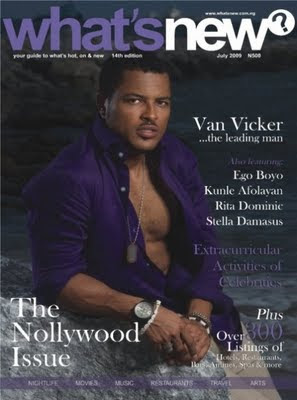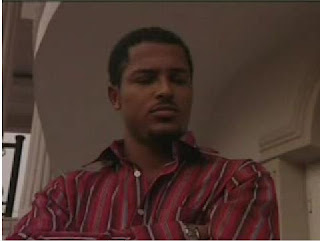WOW INTERESTING! High fashion lines right in Lagos’s own backyard ! An englightening look at high fashion in LAGOS!
 Deola Sagoe designs
Deola Sagoe designsA new generation of Nigerian fashion designers are targeting the country's rich and famous while hatching plans to turn Lagos into Africa's fashion capital, writes Waldimar Pelser.
ON a mannequin behind walls of glass and giant concrete elephant tusks, olive-green snakeskin piping jazzes up an evening gown and blue metallic threads meet black cotton cloth handwoven in a Yoruba method that is said to be a thousand years old.
Nigerian haute couture got a new temple recently and the priestess is Deola Sagoe, an award-winning Lagos-based designer.
With the opening of her flagship store on one of Victoria Island’s premier business streets, Sagoe joined a handful of high-end Nigerian designers catering to an elite used to the very best of London, Paris and Milan boutiques.
Now the ladies of Lagos can indulge in $1 000 (about N118000) pieces or a $25 000 wedding dress right in their backyard – and according to Sagoe she can’t keep up.
In an industry that has long been dominated by tailors who clothe the wealthy at a fraction of the price Western designers charge, Sagoe and her high-end peers have found a budding local market for tailor-made clothing and high-quality, ready-to-wear collections.
“There is a huge market, not in terms of numbers but in terms of the very rich. These buyers want beautifully crafted things to wear. Since they go for the world’s best, they easily recognise what is world class,” says Sagoe.
After years of shopping at boutiques like Chanel, Valentino and Prada, Nigerians are eager for top-quality local designs and it is coming from the likes of Sagoe and Emmy Collins, a London-based Nigerian menswear designer with a boutique on Ikoyi’s Awolowo Road. He charges $300 for a shirt.
“There are sure to be huge parties every week or some cocktails or charity balls... there is so much going on here,” says Sagoe.
“Women are very vain. Some would not be seen dead in the same piece and we all go to the same parties, the circles are small.”
Her answer has been to spend two years building a “lifestyle boutique” on Ajose Adeogun Street, with a floor dedicated to high fashion pieces and another to her prêt-à-porter line and decorated jeans.
There is even a VIP room where clients can privately discuss their fashion fantasies and a fashion café that will soon start serving light meals.
She calls the building, with its arches of intersecting elephant tusks, “African Gothic” – and her own designs are equally bold.
In villages far from Lagos she commissions handwoven cotton cloth (smart), sometimes with her trademark metallic threads; a short black and blue tutu-like skirt becomes the ornate end-product.
It is Sagoe’s signature style; a raffia-like cotton made using “the exact same technique since the 10th century”, she says.
Other pieces incorporate influences of the Arabian tunic, mandarin collar and the Indian jelab. She works in cotton, French Chantilly lace and traditionally printed West African cloth. Her jeans sport an ornate Deola Sagoe crest on the pocket and there are shoes and plans for a men’s line as well.
Her big break came in 2000 when she showcased her designs at New York’s Seventh on Sixth fashion week as part of M-Net and AngloGold Africa Designs fashion show, where she emerged as winner.
About the same time, Emmy Collins met US music star Prince in a New York club and was inspired to launch his own label.
Collins told Nigerian men’s magazine Mode last month that he drew inspiration from the late Nigerian music legend, activist and philanderer Fela Kuti and today his designs are available from Hollywood to Florence.
At his Lagos outlet all shirts sport the Dick Tracey-like Emmy Collins emblem – the silhouette of a man with a hat. A charcoal jacket with red accents fetches $850.
There are floral waistjackets, oversized collars and cuffs that take three cuff-links or buttons.
“Many guys would love to wear these clothes but they don’t have the guts,” says a store attendant. Collins himself told Mode he caters for “the confident man”.
Now he is planning a Lagos fashion show to “elevate the standard of fashion shows in Nigeria” and like Sagoe, would like to open boutiques in South Africa.
But for Sagoe, having seen her wares modelled from Cape Town to Paris, the focus remains to turn Lagos, with its reputation for snappy dressing, into West Africa’s fashion capital.
“Nigeria is such a dynamic place at the moment. Everything is turning around so rapidly to world and global standards,” she says.
Of her own pieces, people sometimes say they “can’t believe it is African stuff”.
“Yes it is! I have a message to the world. We’re not going to ape Western fashion,” she says.



Comments
Nice blog you have here! Thanks for stopping by mine:-)